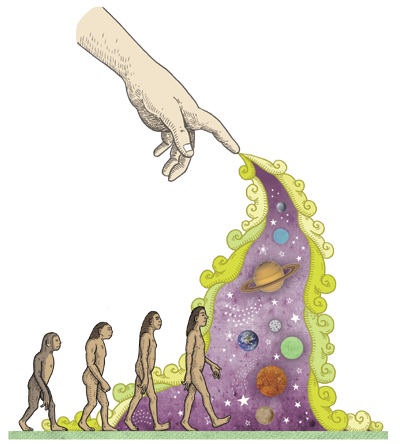What Does the Bible Say?
The Nature of the Church
The church is the body of people called by God’s grace through faith in Christ to glorify him together by serving him in his world.
The People of God in the Old Testament: Israel
In order to understand the church in the full richness of God’s revealed truth, we must examine both the Old and New Testaments. Christians may sometimes use the phrase “a New Testament church,” but the shape of the visible church today bears a clear continuity—though not identity—with the visible people of God in the Old Testament.
God’s eternal plan has always been to display his glory not just through individuals but through a corporate body. In creation God created not one person but two, and two who have the ability to reproduce more. In the flood God saved not one person but several families. In Genesis 12 God called Abram and promised that Abram’s descendents would be as numerous as the stars in the sky or the sand on the seashore. In Exodus God dealt not only with Moses but with the nation of Israel—12 tribes comprised of hundreds of thousands of people yet bearing one corporate identity (see Exod 15:13–16). He gave laws and ceremonies that should be worked out not only in the lives of individuals but also in the life of the whole people.
In the Old Testament, Israel is called God’s son (Exod 4:22), his spouse (Ezek 16:6–14), the apple of his eye (Deut 32:10), his vine (Isa 5:1–7; Nah 2:2), and his flock (Ezek 34:4). Through these names God foreshadowed the work he would eventually do through Christ and his church. Continue at B&H Blog
The Nature of the Church
The church is the body of people called by God’s grace through faith in Christ to glorify him together by serving him in his world.
The People of God in the Old Testament: Israel
In order to understand the church in the full richness of God’s revealed truth, we must examine both the Old and New Testaments. Christians may sometimes use the phrase “a New Testament church,” but the shape of the visible church today bears a clear continuity—though not identity—with the visible people of God in the Old Testament.
God’s eternal plan has always been to display his glory not just through individuals but through a corporate body. In creation God created not one person but two, and two who have the ability to reproduce more. In the flood God saved not one person but several families. In Genesis 12 God called Abram and promised that Abram’s descendents would be as numerous as the stars in the sky or the sand on the seashore. In Exodus God dealt not only with Moses but with the nation of Israel—12 tribes comprised of hundreds of thousands of people yet bearing one corporate identity (see Exod 15:13–16). He gave laws and ceremonies that should be worked out not only in the lives of individuals but also in the life of the whole people.
In the Old Testament, Israel is called God’s son (Exod 4:22), his spouse (Ezek 16:6–14), the apple of his eye (Deut 32:10), his vine (Isa 5:1–7; Nah 2:2), and his flock (Ezek 34:4). Through these names God foreshadowed the work he would eventually do through Christ and his church. Continue at B&H Blog























